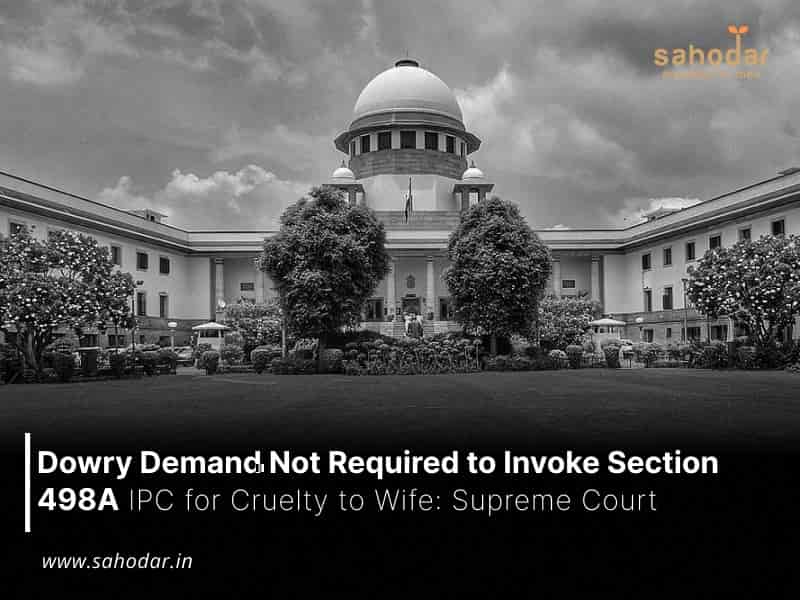The absence of an explicit dowry demand does not negate the applicability of the provision where acts of physical violence and mental distress have been demonstrated, the Court held.
The Supreme Court has ruled that a demand for dowry is not a necessary condition to invoke the offence of cruelty against a wife under Section 498A of the Indian Penal Code (IPC).
A Bench comprising Justices Vikram Nath and Prasanna B Varale emphasized that the essence of the offence under Section 498A IPC lies in the act of cruelty itself and is not solely dependent on a dowry demand.
Therefore, the Court held that even in the absence of an explicit dowry demand, the provision remains applicable if instances of physical abuse or mental distress are established.
“The presence of a dowry demand is not a prerequisite for establishing cruelty under the Section,” the order dated December 12, 2024 said.
Presence of a dowry demand is not a prerequisite for establishing cruelty under Section 498A IPC.
Supreme Court
The Court was considering an appeal challenging the Andhra Pradesh High Court’s decision to quash proceedings under Section 498A against Aluri Thirupathi Rao.
Rao was accused of physically assaulting his wife and compelling her to leave the matrimonial home. Despite multiple attempts to return, she was allegedly prevented from re-entering.
Following an investigation, the police filed a charge sheet against Rao and his mother.
Subsequently, they moved the High Court, which exercised its powers under Section 482 of the Code of Criminal Procedure (CrPC) to dismiss the case.
The High Court appeared to accept the accused’s argument that the allegations did not amount to an offence under Section 498A IPC, as there was no claim that they harassed the wife for dowry.
Subsequently, the wife challenged this decision before the Supreme Court.
Before the Supreme Court, the accused contended that the explanation attached to Section 498A IPC mandates a dowry demand for an act to qualify as “cruelty” under the provision.
The Court analyzed Section 498A and observed that it offers a broad and inclusive definition of ‘cruelty,’ covering both physical and mental harm to the woman’s body or well-being.
“In addition, it covers acts of harassment designed to coerce the woman or her family into fulfilling unlawful demands for property or valuable security, including demands related to dowry. Notably, the provision also recognizes acts that create circumstances leading a woman to the point of suicide as a form of cruelty,” the Court said.
The Court further observed that Section 498A IPC identifies two separate forms of cruelty: one under clause (a) of the explanation, which pertains to physical or mental harm, and another under clause (b), which relates to harassment tied to unlawful demands for property or valuable security.
It emphasized that these provisions should be interpreted independently, meaning a dowry demand is not a necessary condition to establish cruelty under the Section.
“The definition of “harassment” under the Explanation to Section 498A is specifically outlined in clause (b), independent to the “wilful conduct” described in clause (a), thus necessitating a separate reading of the two. It is significant to note that the inclusion of the word “or” at the end of clause (a) clearly indicates that “cruelty” for the purposes of Section 498A can either involve wilful conduct that causes mental or physical harm or harassment related to unlawful demands, such as dowry,” the order said.
Therefore, the Court overturned the High Court’s order and restored the criminal proceedings under Section 498A.

